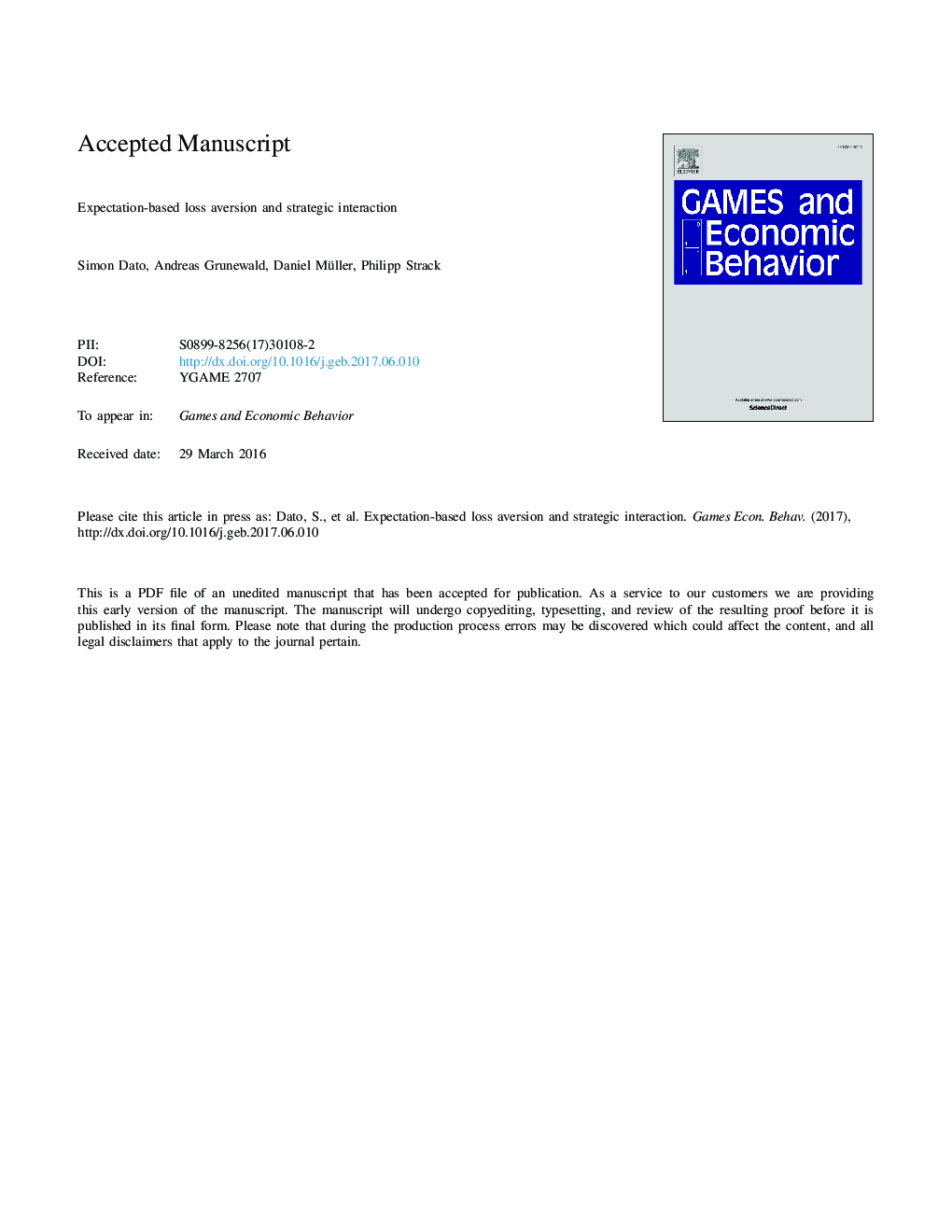| Article ID | Journal | Published Year | Pages | File Type |
|---|---|---|---|---|
| 5071355 | Games and Economic Behavior | 2017 | 47 Pages |
Abstract
By extending the equilibrium concepts of KÅszegi and Rabin, 2006, KÅszegi and Rabin, 2007, this paper analyzes the strategic interaction of expectation-based loss-averse players. For loss-averse players with choice-acclimating expectations, the utility from playing a mixed strategy is not linear but convex in the probabilities they assign to their pure strategies. As a consequence, they are generally unwilling to randomize and an equilibrium may fail to exist. For players with choice-unacclimating expectations, by contrast, randomizing over their pure strategies may indeed constitute a credible best response and an equilibrium always exists. Building upon these insights, we delineate how expectation-based loss-averse players differ in their strategic behavior from their counterparts with standard expected-utility preferences, derive novel strategic effects, discuss equilibrium selection, and derive equilibrium play for some simple games.
Related Topics
Social Sciences and Humanities
Economics, Econometrics and Finance
Economics and Econometrics
Authors
Simon Dato, Andreas Grunewald, Daniel Müller, Philipp Strack,
